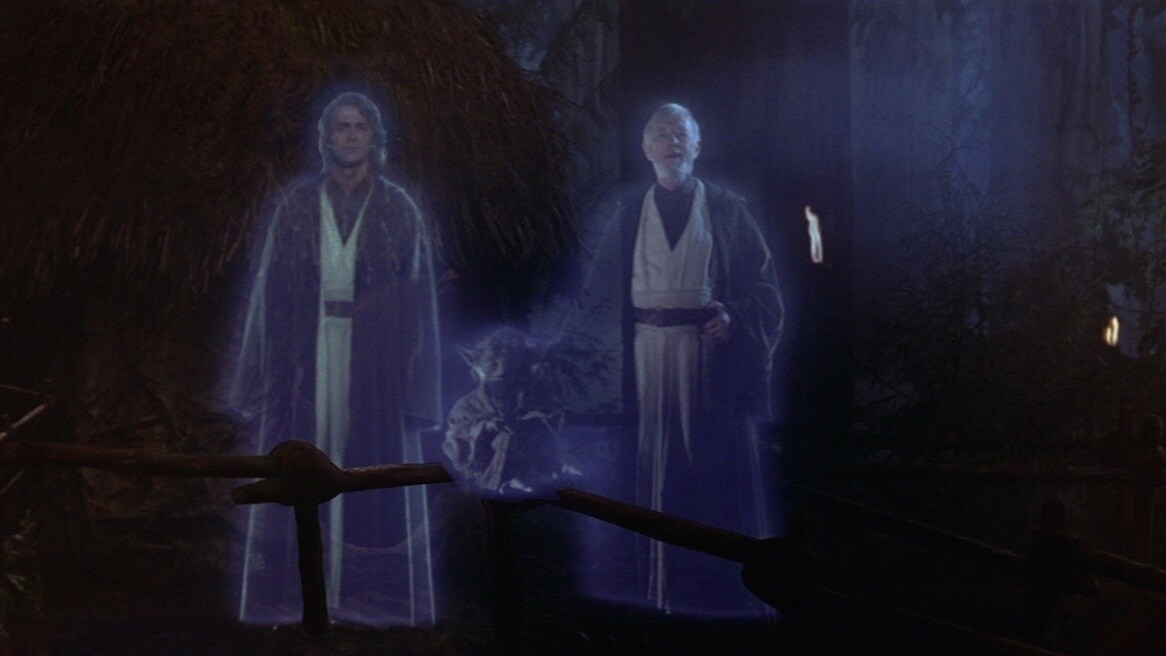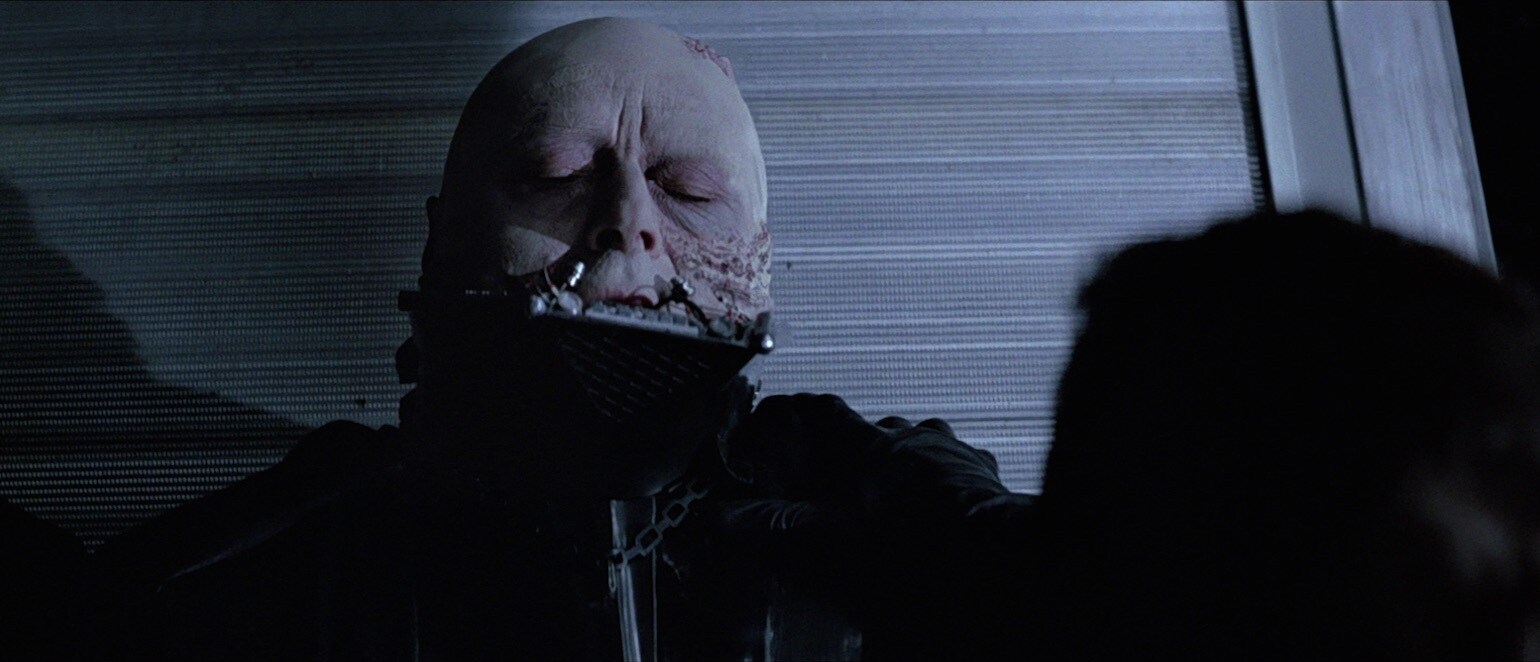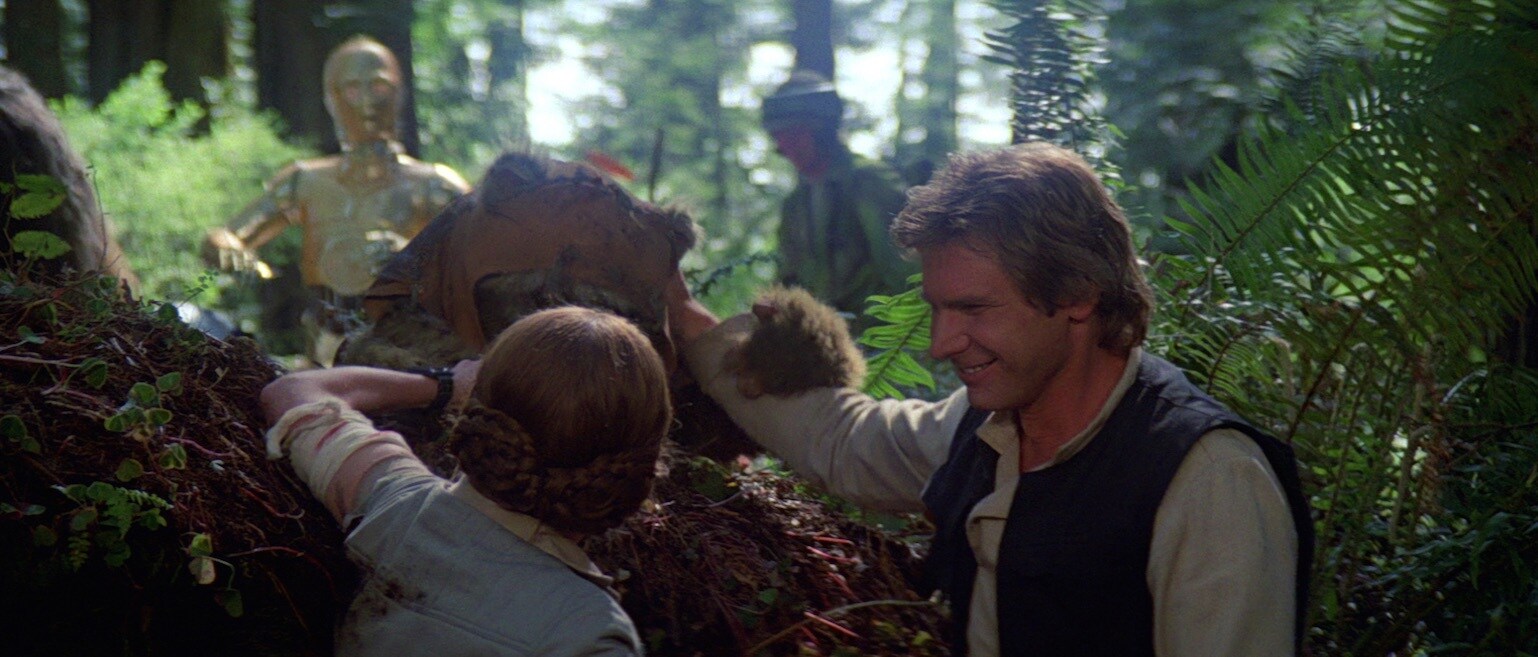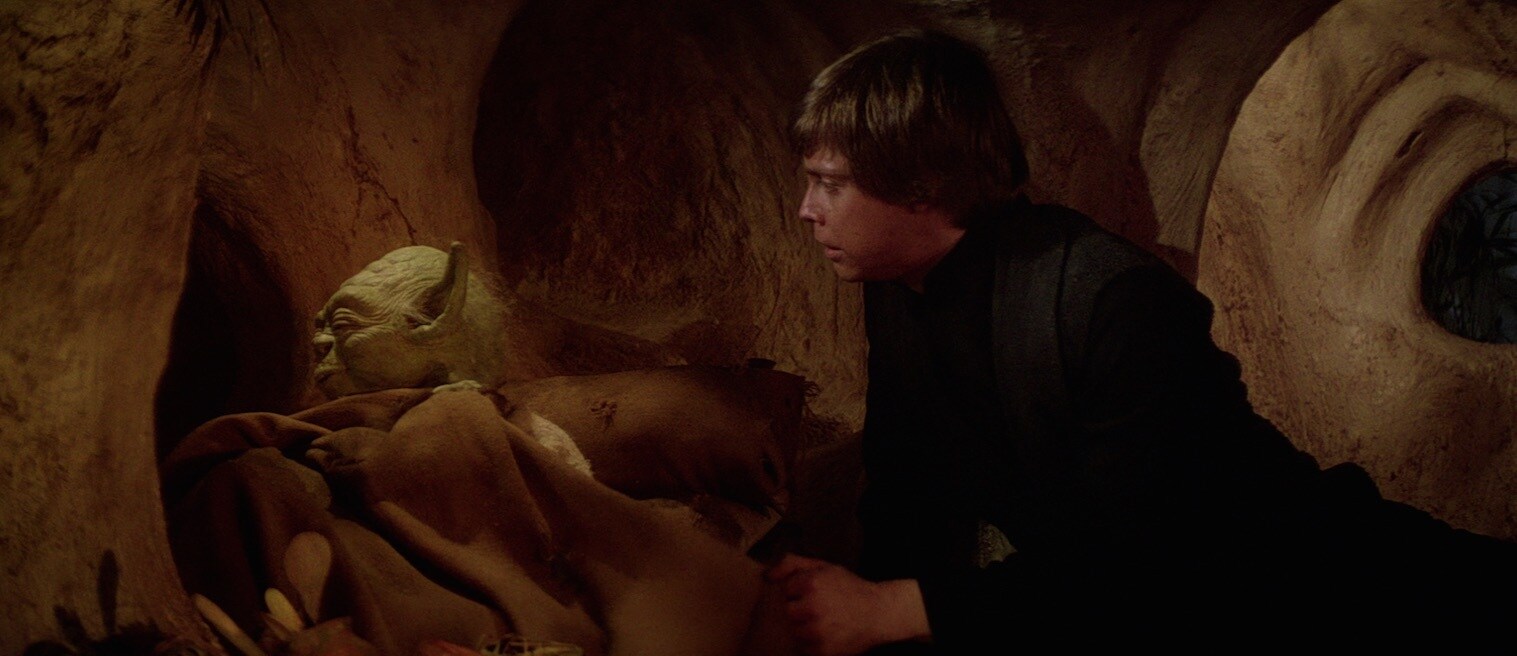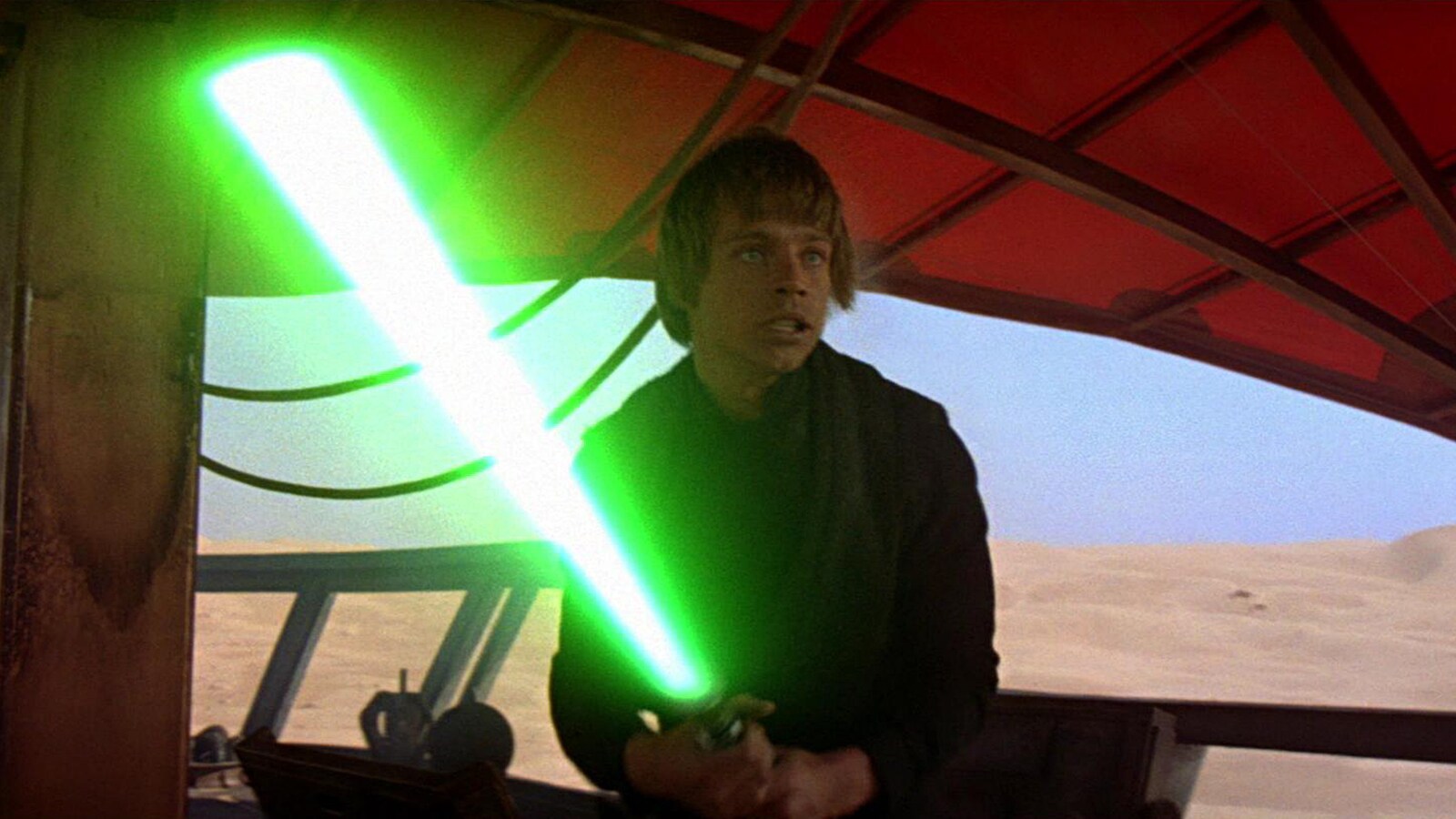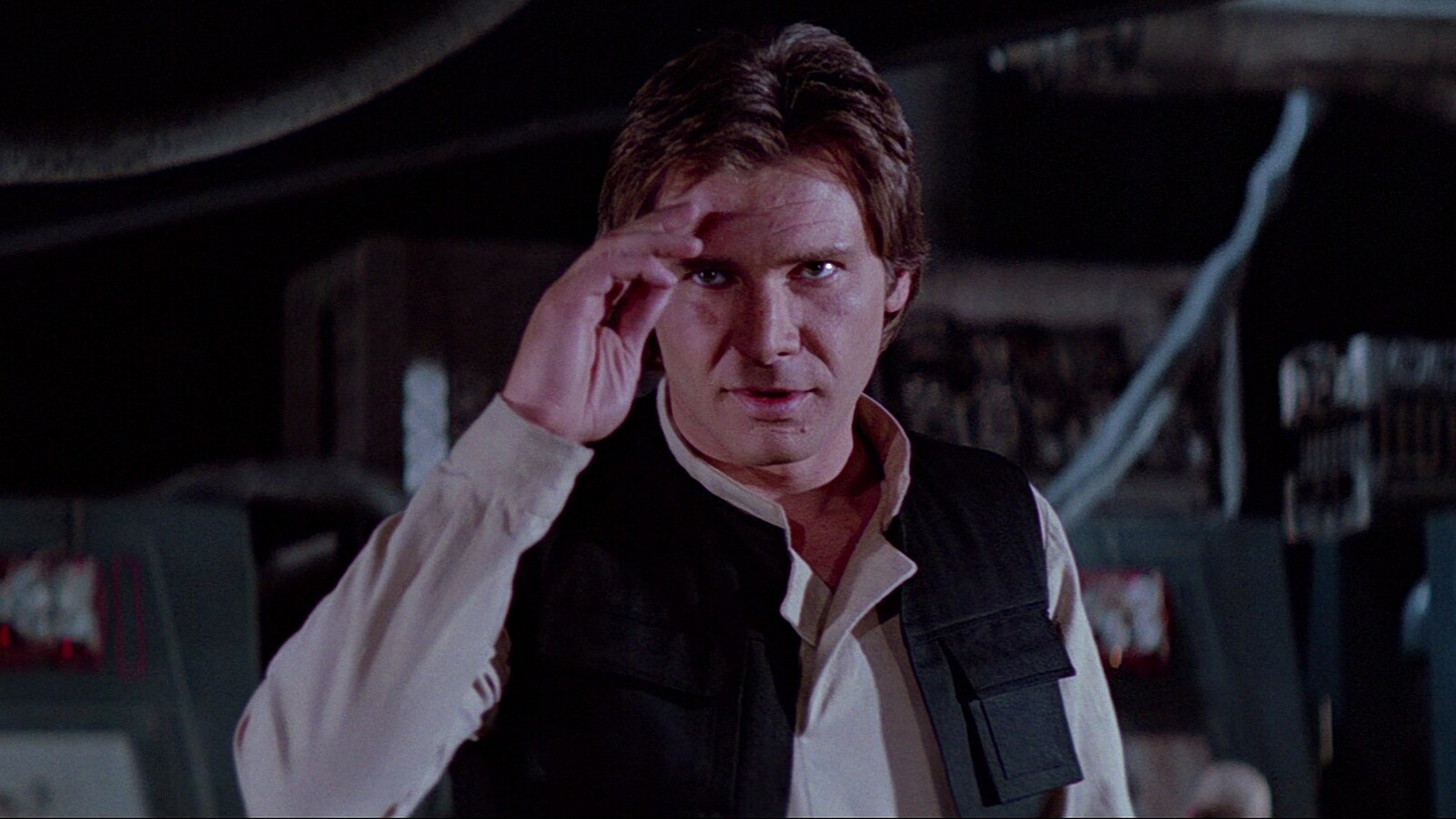Studying Skywalkers is an exclusive column that investigates the characters, themes, and lessons of Star Wars from an educational, literary perspective. In this installment, StarWars.com looks at themes in Return of the Jedi.
Star Wars.com completes its look at themes present in the six existing Star Wars films, as we are finally able to experience the newest chapter in the saga, The Force Awakens. The final film in the original trilogy, Return of the Jedi, answers many of our questions, brings important new information to the overall story, and catapults a change in George Lucas’ mythological canvas that has enraptured us for almost 40 years. We see the end of Emperor Palpatine’s dominant reign, learn the fate of Darth Vader, say goodbye to some old friends, and find out how Luke Skywalker restores peace and freedom to the galaxy. As is often the case in meaningful storytelling, Return of the Jedi features themes that bring even more impact to the audience, and allow us to discern greater significance to this galaxy far, far away.
The Power of Redemption
Redemption is at the heart of Return of the Jedi; in fact, it could be said that the power of redemption is the main theme of the entire Star Wars saga. To be fully redeemed is to be truly sorry for one’s transgressions, and to seek to make amends for harm done. Darth Vader’s sins are the stuff of legend, and he has much to make up for. Many have debated whether or not the former Jedi deserves redemption, but the Force seems to have other plans.
Once Darth Vader turns on his Master, Emperor Palpatine, and saves his son, Luke, from Force lightning and almost certain death, Vader sacrifices himself. In, quite possibly, the first selfless act in almost 25 years of wreaking havoc on the galaxy, Vader tosses Sheev into the Death Star’s chasm, causing an explosion that symbolizes the end of the Sith, as well as the end of Vader and the Emperor’s reign of tyranny. Light comes from this explosion; a beautiful, white light that bathes Luke and Vader in the knowledge that change has occurred. Vader turns from darkness, embraces his family, and makes peace with his inner demons. He is no longer a slave to sin and evil, and looks to save his son.
Once Luke witnesses his father as a Force ghost at the end of the film, we know that Anakin Skywalker has been redeemed, and a new chapter in the galaxy is born. Vader chooses to sacrifice his own life, giving life to his son in the process, as well as the galaxy. It is conceivable that many more were saved in this act than any crimes he committed as a Sith Lord, and merits redemption in the process.
In unity, we achieve our goals
The Battle of Endor helps to bring down the Death Star’s defense shield, due to the attack from Han Solo, a small Rebel band, and, in the unlikeliest of forms, some Ewoks. Clearly, there are more differences between the Rebels and the natives of Endor than just language, but there is something they have in common as well: they want to stop the Empire’s evil sway over the galaxy.
It’s personal to them, as they have started to lose their homes. The Rebels do not have a permanent home, thanks to the Empire’s stratagems, and they find they have mutual goals. Even though the two species have differences, what they share means much more, and because the two sides are able to find strength in unity, Lando Calrissian is able to destroy the second Death Star. Much like we have learned from A New Hope, the theme here is reinforced: people from different walks of life can find strength in unity, and help to bring about justice and peace to the galaxy.
Always honor your commitments
Despite Yoda’s sincere, yet stern warning to Luke in The Empire Strikes Back, Luke rushes to meet Darth Vader, and is almost destroyed. However, Luke does promise to come back, and come back to Dagobah he does. He does not receive more training, of a physical sense. What he does receive is knowledge. He learns the truth about his father, and continues to find his path towards helping Darth Vader bring balance to the Force.
Because Luke honored his promise, knowledge becomes his greatest weapon, as does his faith in his father. He keeps his word, honors his commitments, and trusts his mentor. It would have been easy to turn his back on Yoda and Obi-Wan, because he did not have the truth about Darth Vader from the start, but because he is a person of his word, he exhibits strong perseverance and strength of character, and is able to become a Jedi, like his father before him.
What other themes in Return of the Jedi have you noticed in your many viewings? Let us know in the comments below, and be on the lookout for a future installment, themes in The Force Awakens.
Dan Zehr is a high school English teacher with an MS in Teaching and Learning, and runs Coffee With Kenobi (with co-host Cory Clubb), a Star Wars podcast that analyzes the saga through critical thinking, analysis, interviews, and discussion. He is also a member of the Rogues (as Blue Leader), a network of teachers that incorporate Star Wars in the Classroom.




